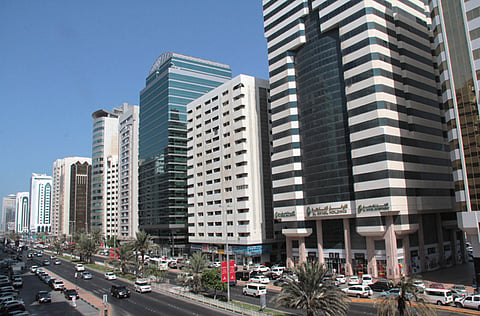Residents can offer views on Plan Capital 2030
Residents asked to offer comments on Abu Dhabi schools, mosques and retail shops

Abu Dhabi: Residents will soon be able to comment on an updated development plan as part of the 2030 vision for the emirate.
The plan update will focus on planning for Complete Sustainable Communities (CSC), ensuring that neighbourhoods have the facilities they require to meet daily needs, such as schools, mosques, and retail shops, a senior official at Abu Dhabi’s Urban Planning Council (UPC) told Gulf News on Monday.
It is anticipated that the new Plan Capital 2030 will be launched this year, subject to approval, Eng Amer Al Hammadi, Executive Director of Planning and Infrastructure at UPC and Deputy Chairman of the Plan Capital 2030 Update Steering Committee, said.
“We intend to share a summary of the plan with Abu Dhabi’s citizens and [other] residents through a microsite on the UPC’s main website to ensure all members of the community can have access to the plan and see what the plan for Abu Dhabi is over the coming years, in pursuit of Vision 2030,” he said.
“We invite everyone to view the plan so that we can all share in the same vision for the Capital Region and welcome any feedback, should viewers wish to engage with the UPC.”
He was speaking about the third “charrette” held on Monday for the Plan Capital 2030 update process in Abu Dhabi. A charrette is an intensive planning session where citizens, designers and others collaborate on a vision for development. Shaikh Theyab Bin Mohammad Al Nahyan, Director of the Plan Capital 2030 Update Project, opened the event.
The charettes organised by UPC focused on evaluating the current Plan Capital 2030, which was launched in 2007, against current conditions and needs which have progressed as a result of changing global economic conditions and an evolving economy and maturing local real estate markets.
About the Complete Sustainable Communities (CSC) initiative, the official said such communities will meet the diverse needs of existing and future residents, their children and other users. They will contribute to a high quality of life by offering a range of housing options, community facilities and public spaces that are all well connected, safe and sustainable, Al Hammadi said.
“This set of policies, regulations and manuals did not exist back in 2007, but it has now been incorporated into the Plan Update, which will benefit greatly from this holistic approach to community planning,” he said.
The Plan Update is less focused on expanding the city and more about using smart growth practices to make the most efficient use of land where development has started, or to revitalise existing areas to ensure they meet the needs of residents, Al Hammadi said.
“Obviously, the creation of new developed areas will occur, but these will be carefully managed. Restrictions will be placed on unsustainable sprawl by amending the existing Urban Growth Boundary [the boundary within which the majority of development will occur] to avoid increased infrastructure, environmental costs, and the creation of isolated communities,” he explained.



